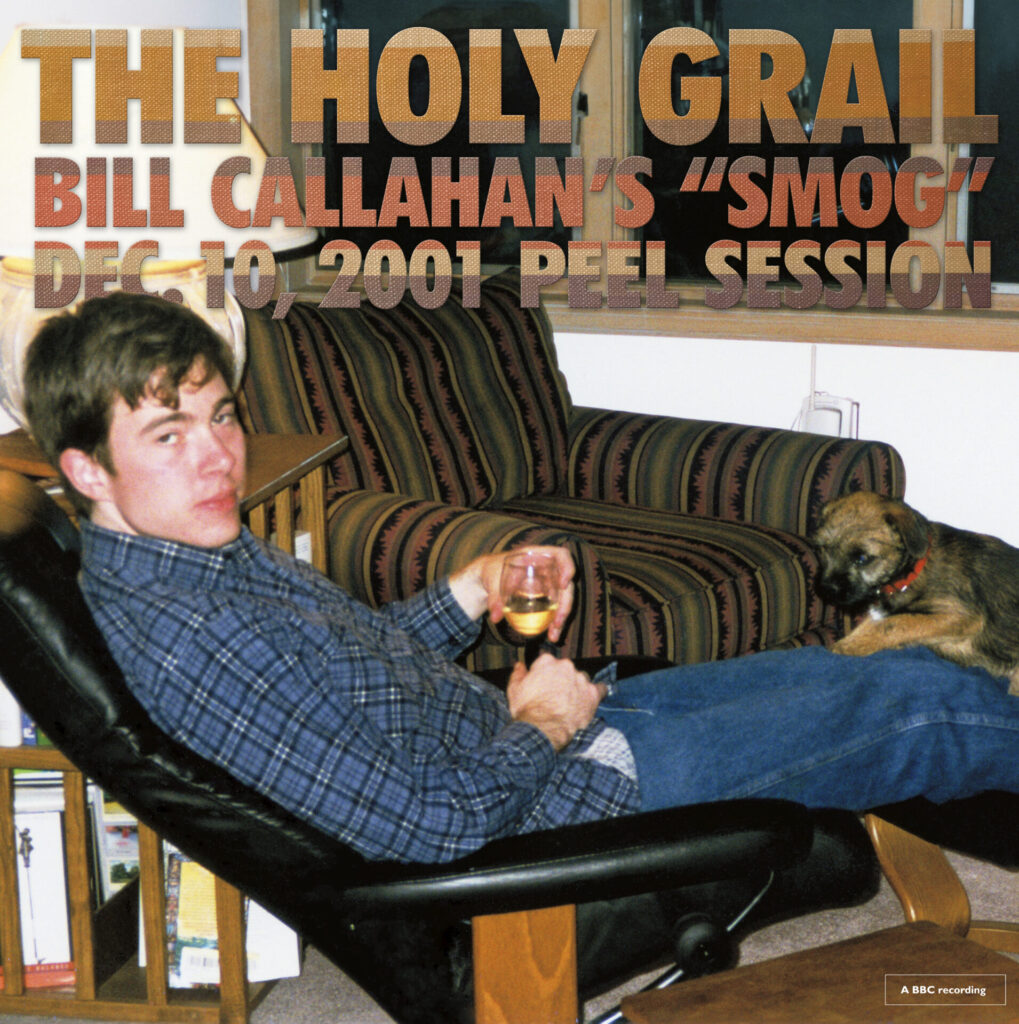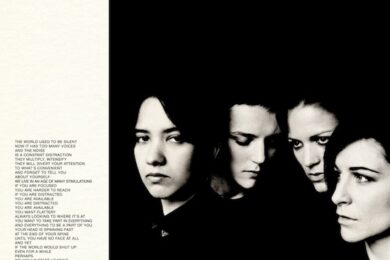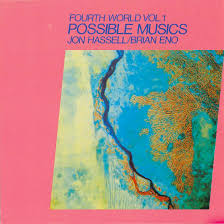Bill Callahan watchers have invariably learnt not to take his words at face value. Truth infuses his songs, though truth can be just as easily found in fiction as it can in the personal outpourings of the wounded singer-songwriter. You suspect Callahan prefers lurking in the deceptions of the novelist where others like to overshare. That sardonic, enigmatic quality he exudes – detached, quasi-nihilistic, even post-modernist – makes him the poet laureate for cynical, irony-obsessed gen Xers everywhere, though it’s fair to say that he’s moved away from that position somewhat in recent years – something we’ll come to shortly.
Callahan’s elusiveness, particularly under the Smog alias, has allowed us the dubious privilege of projecting our own suppositions onto his life and art. Which brings us to his latest EP, a four track live session recorded for John Peel back in 2001, which is no doubt crying out for some inference based on the paltry clues and red herrings he leaves for us. The Holy Grail: Bill Callahan’s “Smog” Dec. 10, 2001 Peel Session feels like it comes at us from a different era, and in a way it does, given that Peel was still alive. Sonically songs like the elasticated ‘Cold Discovery’ belong to a forgotten world, back when nobody questioned why we were all drunk all the time. Callahan sees it as a “time capsule” that, to him, evokes the circumstances of its recording. In the press release, he defers to opinions of friends who’ve listened to it too.
“Somebody said this EP is very Twin Peaksy,” he writes. “Not in a[n Angelo] Badalamenti, torch-song way – a deeper connection. I can see that.” What he means by Twin Peaksy isn’t entirely clear, though if it’s interchangeable with Lynchian, then perhaps we’re getting somewhere. The OED defines Lynchian as “juxtaposing surreal or sinister elements with mundane, everyday environments [and] using compelling visual images to emphasise a dreamlike quality of mystery or menace.”
Callahan’s interpretation of ‘Twin Peaksy’ seems to arise from the slightly awkward professional dynamic that BBC Maida Vale sessions tend to throw up, a strange surrealist confluence where wayward American minstrels interface with stuffy, fastidious English eccentrics wearing ties behind a mixing desk. “With a radio session such as this, there is a different aspect,” Callahan explains, “…it’s more of a performance maybe than a usual recording, because the audience (engineer and producer) were foreign to us. British, milk in tea. So we gave them something to show them who we were – Dale Coopers with our black coffees.”
On a first listen, this time capsule throws into sharp relief the differences between Smog the group (in parenthesis, or otherwise), and Bill Callahan the solo artist, even if Smog’s final album under the moniker, 2005’s A River Ain’t Too Much to Love, and 2007’s Woke On A Whaleheart under his own name, appeared to follow the same artistic trajectory. Certainly time has made the demarcation clearer, where at first it looked like business as usual.
Callahan naturally gave conflicting reasons for the name switch when it occurred. To Interview in 2009 he shrugged: “I think it was mostly just for the change. I’d been using it for twelve or thirteen years, which seems really remarkable to me, that I would use it that long.” But speaking to Pitchfork two years earlier, the reasons seemed to go deeper: “There has definitely been a transition of some sort, an upheaval, which started three or so years ago. You’ve come at an unfortunate time in that I am still trying to sort it all out. I cannot tell you exactly what is going on now. I look at my hands and I don’t know what they wrought in the past. Are they the hands of a bad man? I used to be an artist. I don’t think I am right now. I don’t know if I ever will be again. I am something else. I was a student of personal strife. I ran with the wrong crowd early on. I tortured myself for a song. I thought it was the way.”
‘Beautiful Child’ is a study of personal strife from the hands of a bad man. Although pretty, it’s also desolate, yearning, even leering, a paean to an object of desire – one, you suspect, who has had the good sense to run a mile. It’s a long way from the avuncular loveliness of ‘Pigeons’ from 2020’s Gold Record, where Callahan is a limo driver escorting a married couple away from their wedding party, imparting wisdom and kindness along the way.
Moreover, the EP features a photograph of the singer on the cover looking bleary-eyed and holding an alcoholic beverage of some description. It fits neatly into the spirit of the song ‘Dirty Pants’; a live version of a song taken from Rain On Lens which opens with the lines: “And so I dance in dirty pants / A drink in my hand / No shirt and broken tooth / Barefoot and beaming.” It summons memories of more hedonistic times, and one wonders if the transatlantic misunderstanding about the word “pants” came up with the stiff technicians at Maida Vale. Perhaps it acted as some kind of an icebreaker?
Years later, a cleaner, leaner, older and wiser Callahan briefly mentioned Alcoholics Anonymous in the song ‘Confederate Jasmine’ from 2019’s Shepherd In A Sheepskin Vest: “There’s a wolf in my house,” he drawls in his voice of darkest mahogany, “messing up the bed I learned to make in AA / And a frightened child won’t tell the wolf to go away.” Given the boozy complexion of some of his previous work, I fell into the trap of assuming his words were autobiographical. With the opportunity to quiz him via email for an interview in 2020, I asked him if it meant he was in recovery these days.
“I’m not,” he wrote. “I have friends in AA and I cribbed it from them.” Friends of Bill may provide him with hard-bitten insights and they may know things about him in return, but the rest of us are left projecting our hopes, prejudices and assumptions onto a shapeshifter. He’s an agent of the phantasmagorical, an illusory figment of our imaginations, just like the Holy Grail itself.
The Holy Grail: Bill Callahan’s “Smog” Dec. 10, 2001 Peel Session is out now via Drag City






